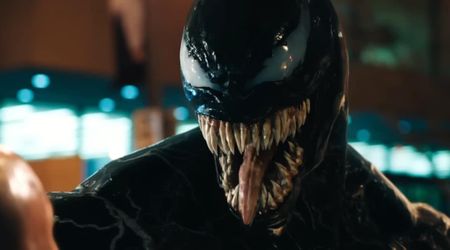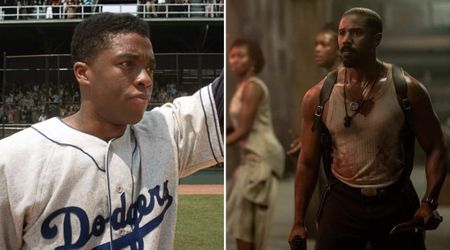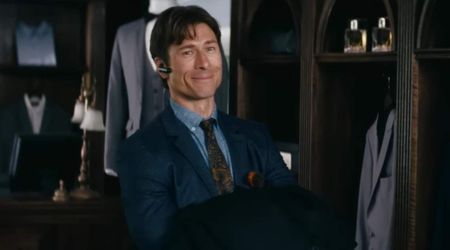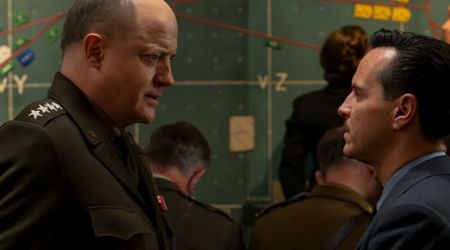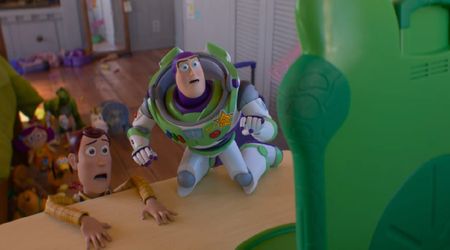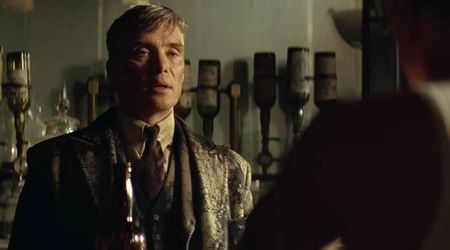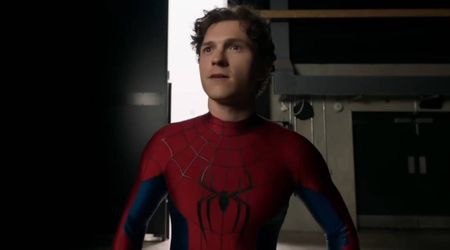How 'A Quiet Place' brilliantly weaves a pro-life message into its horror narrative

John Krasinski's 'A Quiet Place' is making waves across the world for its masterful direction and gripping visual storytelling that left audiences at the edge of their seat, and begging for more. Krasinski had reportedly been working on the script since 2013, and clocking in at a crisp 90 minutes, the movie delivers a powerful and thought-provoking message through a medium that was thought to have been outdated in the 1930s: silence.
The movie has deservedly earned rave reviews from critics, as well as audiences, who have expressed adulation at the stellar acting performances from a relatively inexperienced (bar Emily Blunt) cast, the brilliant manipulation of one's auditory senses to deliver something more fulfilling than a cheap jump scare, and a gorgeous farm setting where a majority of the story unfolds.

"But there are moments when the movie takes us firmly by the hand and escorts us down a darkened path, and they lead to one of the most profound of communal pleasures: the sound of a movie audience screaming as one." - Slate
" A Quiet Place is an undoubtedly taxing affair for the nerves; fortunately, it's also a deeply affecting one." - The Atlantic
"The breathless opening reveals Krasinski's sophisticated filmmaking approach, setting up the premise and showcasing the meticulous attention to detail that will turn his lean story into a masterclass of tension." - Sight and Sound
"That solution, that final sequence... instantly becomes a controllable chaos and materializes a beautiful destruction that we all have quietly hoped for. Your imagination will do the rest." - Cinegarage
"The question Krasinski tackles is what defines a family and what's needed to preserve it? 'Who are we,' asks Mom, 'if we can't protect our children?' The answers are worked out with satisfying complexity and genuine feeling, proving indeed that home is where family is. This new horror classic will fry your nerves to a frazzle." - Rolling Stone

But if you're a casual watcher, you may have missed a prominent theme in the movie, a political and social commentary which has gotten social media up and talking. One that, when pointed out, changes your entire perception of what you initially assumed was an innocent horror movie: a fierce advocating of the pro-life argument, but not in the traditional sense.
The movie opens with the Abbott family - consisting of Lee (John Krasinski), his wife Evelyn (Emily Blunt), sons Marcus and Beau, and deaf daughter Regan - foraging through a dilapidated convenience store in search for supplies to aid their survival. They are currently on day 89 of a post-apocalyptic world in 2020, where the human population has been decimated in the short span of three months by extra-terrestrial sightless creatures known as 'Death Angels' who hunt through sound alone.
The creatures have an impenetrable armor and no perceivable weakness, and it is implied that any sound or noise is the equivalent of a death sentence. Luckily for the Abbott family, they have an advantage. Both Lee and Evelyn are fluently versed in American Sign Language due to Regan and use it effectively to relay instructions to their other two children. When Beau takes a toy rocket from the shelf, Lee forces him to return it, warning that the noise would attract the creatures.

But Regan feels bad for Beau and gives him the toy and as the family makes their way back to their farm, the boy activates the rocket, setting off a blaring sound that jars with the disquieting silence. He immediately falls victim to one of the marauding death angels. Regan naturally blames herself for the death and is despondent. The movie cuts to a year later.
There is a consistent insistence on how quietness is the key to survival. The children play monopoly with cloth pieces and roll their die on the carpet; sand is poured on every path to and from the house because the creatures are sensitive to even the sound of the crunching of leaves underfoot; the children are taught never to speak, only to communicate through ASL; the family is devout and God-fearing but prayer can only be offered through the holding of hands and silence. Despite the overwhelming quiet, the message is loud and clear: live in silence or do not live at all.
And because of this, your attention is immediately drawn to Evelyn, who is shown to be pregnant; very pregnant and just under a month away from the due date. Your mind races, calculating why they would choose to bring a baby into a world where chances of survival are slim to none. The mere thought of another one of their offspring being hunted down and torn apart should have put them off. Despite being entirely aware that these fearsome creatures are drawn to the slightest of sounds, why would they put theirs, the baby's, as well as their other children's life at risk by consciously deciding to extend their family?

Is it the pervading guilt of having lost one child and an aching want to replace that unfillable void with another? Krasinski does seem to hint at the possibility by depicting scenes where Evelyn is shown longingly looking at the pictures of Beau and crying. Or was it accidental? Most likely not, considering how its shown that the couple has meticulously prepared in expectancy of the birth; an underground bunker was dug out and sound-proofed, and every possible contingency was mapped out - including one where a bawling baby would have to be placed in a closed container with an oxygen supply to draw the angels' attention away.
No matter how you try to wrap your mind around it, it doesn't make sense. In life, especially when it comes to a matter of survival, you always play for the odds, not against it. There is little scope for emotion when every decision is quite literally the difference between life and death. When you're in two minds, you weigh out the positives and negatives, and if the former outweighs the latter, you know what path to follow. The decision to have a screaming, vulnerable baby which can neither protect itself nor communicate quietly seems counterproductive to the fullest.
It's when you're in that limbo, not knowing how to perceive the seemingly odd decision, that the realization finally dawns. The movie is about survival. Survival. Not of just one family, but of the human race in its entirety. Threatened to near extinction by a pack of rapid, extraterrestrial xenomorph-like creatures, humanity has two choices: lie down and die out or fight back. And this does not necessarily mean fight back physically - it is made abundantly clear that the creatures boast no chinks in their armor. It instead means you do your part in ensuring the continued propagation of our species by being brave enough to undertake the raising of a child.

As the Washington Post cleverly pointed out, 'A Quiet Place' is a pro-life movie 'in a deeper sense than we usually mean when we highlight pro-life movies.' It is nothing like 'Juno' or 'Knocked Up' in which the protagonist's unexpected pregnancy is merely a plot point around which the entire story revolves. A discussion of abortion, while valid, would serve little purpose because there was never a chance that the option would be taken up. If the baby is aborted, there is no movie.
It's not that straightforward in the case of 'A Quiet Place.' The Abbotts not having the baby would not render the movie meaningless. The pregnancy is cleverly woven into the script to serve as a tangential plotline; what would happen if they didn't go forward with it vs what would happen if they did.

More importantly, it isn't as much pro-life as it is 'pro-living.' In the end, every person's life is defined collectively by the sum of their experiences. Experiences which involve making friends, falling in love, getting your heart broken, and experiencing agony. Without these, life on its own is inherently meaningless; the universe is random and left to its stead, everything dissolves into chaos. Lee and Evelyn demonstrate to their children that despite the adverse conditions, their life is worth living because they will always have one another to care for and look out for.
And as the Post so succinctly stated, "'A Quiet Place' is about what it means to be alive, what it means to be human, and what it means to continue existing in a world that has made being a human virtually impossible." It is about not just the survival of our species, but the survival of what makes us so profoundly human: love.

